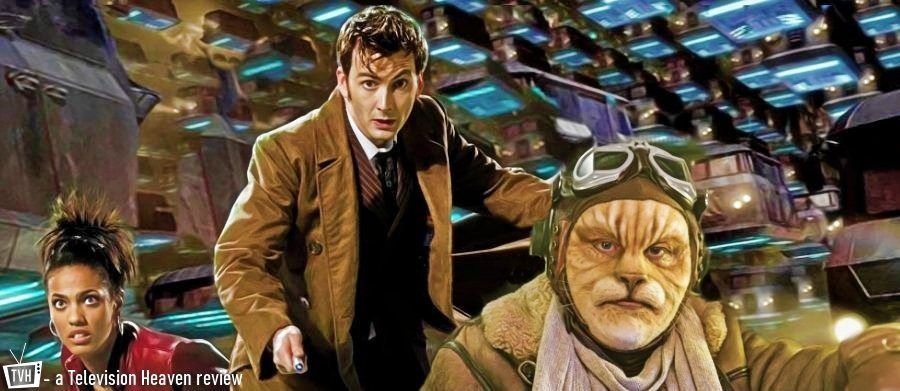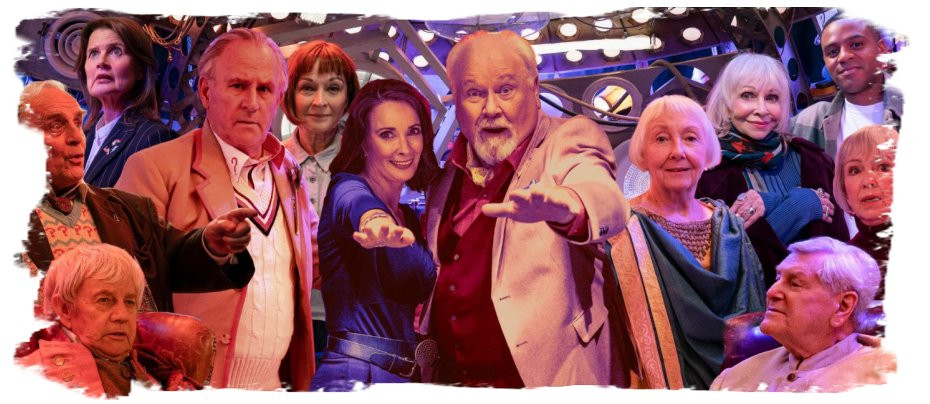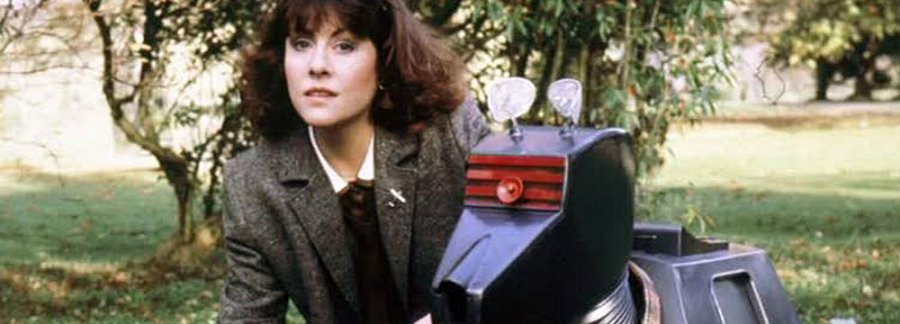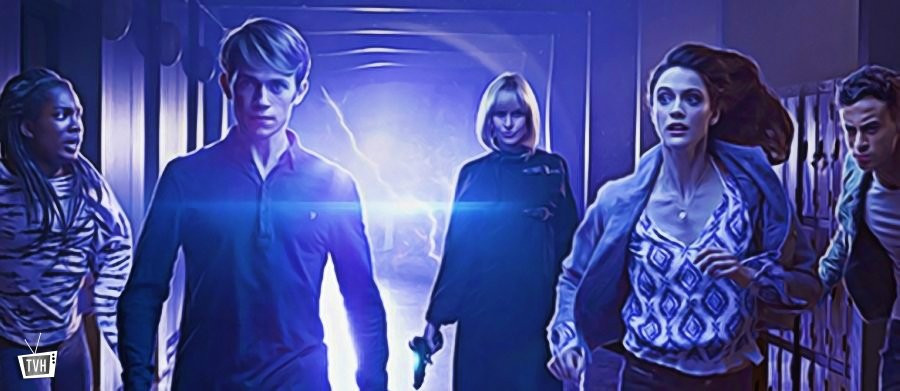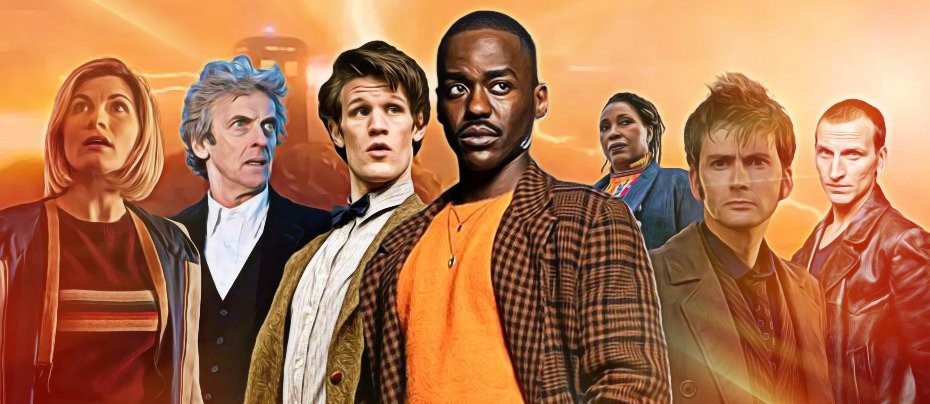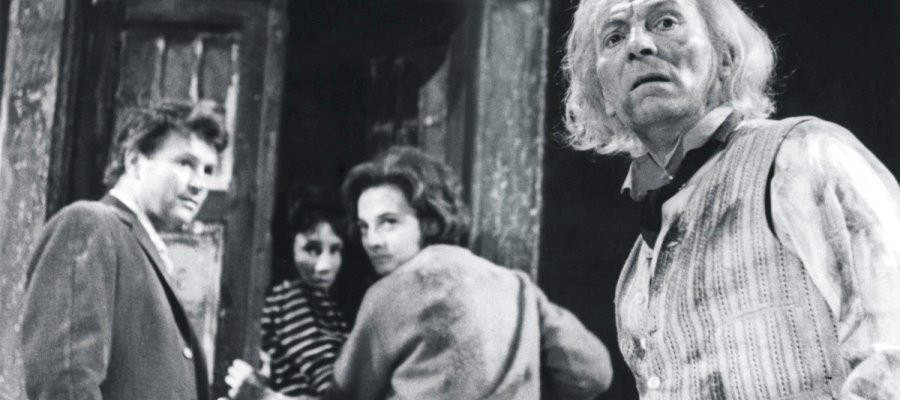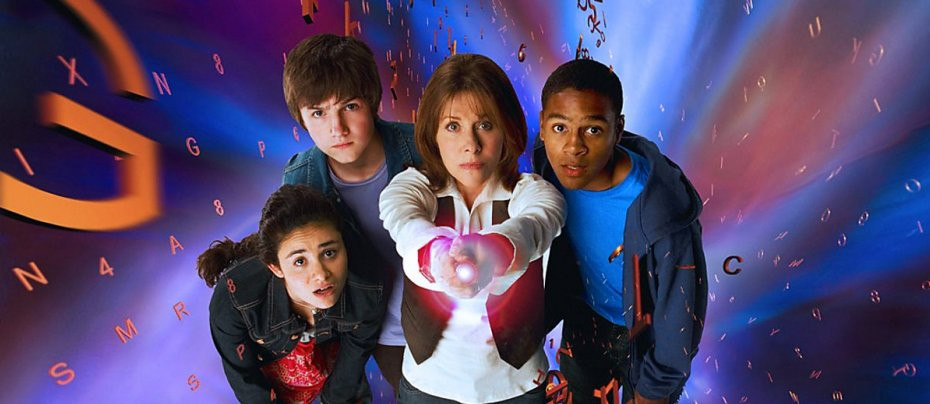Torchwood

"Torchwood, outside the government, beyond the police. Fighting for the future on behalf of the human race. The 21st century is when everything changes. And Torchwood is ready." – Captain Jack Harkness
Beginning in 2006, Torchwood became the first of the two Doctor Who spin-off's created by the mastermind behind the revival, Russell T Davies. Davies credits American TV shows such as Buffy the Vampire Slayer as an inspiration for the revival due to their epic format and scale. Succeeding two series of 'Who' by 2006, he took further inspiration with the spin-off Torchwood which, like the 'Buffy' spin-off Angel, was hyped as a darker and more adult series that would premiere on BBC Three in the suitable post watershed time slot.
Torchwood's protagonist, Captain Jack Harkness, played opposite Christopher Eccelston's Doctor and companion Rose Tyler in the 2005 revival series. Despite only appearing in the second half of the series, the character quickly became popular with viewers thanks to John Barrowman's performance, completely immersing himself in the character's flirtatious, humorous and yet heroic appeal. The character also gained notoriety for becoming the first ever bisexual character in the entire history of Doctor Who and was met with little controversy then it perhaps would have twenty or even ten years earlier. And then there's the 'Torchwood Institute' itself which plays a significant role in the mythology of series two. In the Who episode Tooth & Claw, Queen Victoria conceives the 'Torchwood Institute' as a secret organisation dealing with alien and paranormal threats upon the Earth.

With both the character and concept becoming popular amongst Whovians, expectations for the spin-off were high; set in Cardiff, the first episode sees police officer Gwen Cooper (Eve Myles) witness the Torchwood team perform a brief resurrection on a murdered man in order to gain knowledge of his killer. After researching the institute's background and activities, she joins the team and is sucked into its dark and dangerous world. The first series took on a monster-of-the-week format with each episode depicting the team investigating strange and gruesome cases that helped the series live up to its name as the 'adult Doctor Who.' With a supporting cast of characters including Ianto Jones, Toshiko Sato and Owen Harper, the series had a clear premise that would be accessible to viewers.
However, compared to the other Doctor Who spin-off, CBBC’s The Sarah Jane Adventures, it's safe to say that Torchwood took a while to find its feet. In order to live up to its name as an adult series, the content including strong violence, bad language, and frivolous sex scenes came across gratuitous and desperate. Not to say that every episode of the first series are terrible, but going too far into ridiculous adult territory of countryside cannibals and sex addicted aliens gave the series more of a childish identity than adult. And plus, various storylines were too reminiscent of Buffy, Angel and X File episodes; three TV shows that I believe made and ultimately exhausted the monster-of-the-week format.
The characters themselves were particularly unlikeable, written as stereotypes with no depth or personality. Toshiko was basically a thirty something Willow Rosenberg, while Owen lived up to all the ugly areas of lad culture and had absolutely no virtues. Gwen, who has an affair with Owen, has no distinct qualities and as for Captain Jack, he's more aggressive than the character we met in Doctor Who and while his team know little about him, by the end of series one neither do the audience; indeed the only revelation we learn of is his immortality. The actors are by no means to blame, they tried but their talents couldn't overcome some poorly written scripts.

While gaining record breaking audience figures for BBC Three, some of which haven't been surpassed since, the public and critics were divided by the first series of Torchwood. Thankfully, while still not perfect, series two, which began on BBC Two in January 2008, would be a vast improvement. Having learnt of Captain Jack's past in three episodes of the third series of Doctor Who, he returns to the team with more confidence and a light hearted breath of fresh air, and the same could be said for the series. Yes it still qualified for its nine o’clock showing, but the humour and banter between the characters made them more bearable and human.
The stories became much more character driven and gained further depth than in series one. Freema Ageyman, who played companion Martha Jones in Doctor Who's third series, guest starred in three episodes of series two and by acknowledging the parent series, her appearance was a welcomed inclusion. Further development into Jack and Ianto's relationship examining Jack's sexual identity was done in a sophisticated manner, juxtaposing the immature exploration of relationships and sexuality themes in series one. Series two ends dramatically with the deaths of Owen and Toshiko bringing a dark and unsafe thud to the series that was missing before - but ultimately welcomed.
Ending on a dramatic note with Torchwood's second series and with the success of The Sarah Jane Adventures, Russell T Davies had created a multi-dimensional universe within the world of Doctor Who. This success was celebrated in high style when in the epic two part finale of Doctor Who's fourth series, the three series crossed over for an epic battle against the Daleks, halting their threat against the Galaxy. Whether you had followed all three series, two or even one, these episodes became a huge TV event and cemented the Doctor Who revival its place in TV history. And yet only a year later, the recession hit the BBC hard and massive cuts were imposed on all programming, particularly the three Doctor Who series. As a result, Davies scrapped the old format and serialised Torchwood's third series by structuring one story over a five episode miniseries. And while this was inevitably a headache and change for the production team, it would be the making of the series.

Under the title Torchwood: Children of Earth, the remaining team, Captain Jack, Gwen and Ianto, must work against the government who plan to meet the request of an alien life form demanding the Earth's children. With earth-shattering performances, high action and a downright heart-breaking conclusion, Children of Earth was shown on the flagship channel over five nights in June 2009. Attracting an average of 6 million viewers, Torchwood had finally become its own series and had moved away from its simple identity as the 'Doctor Who adult spin-off.' Indeed, it finally learnt what the term 'adult drama' means; hard-hitting storylines and mature themes that are simply too difficult for young viewers to process and not just gratuitous violence, swearing and sex. It was an electrifying five nights for those of us who watched it as shown by the viewing figures and critical acclaim. In particular, the character of Captain Jack Harkness finally shows his true colours. He's depicted as an antihero as while his actions ultimately saves millions, it comes at a cost as he becomes a monster to the few people whose lives he devastates. With the death of Ianto, Gwen's pregnancy and Jack disappearing in order to avoid endangering anyone else close to him, the series was given a tragic yet fitting conclusion.
It was clear that the serialised format worked best for Torchwood and RTD was approached again in 2011 for series four, which brought about even more changes. Working in conjunction with the American channel Starz, Torchwood: Miracle Day would be a Welsh and American production, seeing Captain Jack and Gwen working with a new team of American characters trying to find answers when the world's population spikes due to global immortality. This opportunity cemented Torchwood's status as a global cult series with each episode of the ten part miniseries airing first on Starz and then on BBC One. The stateside move ultimately divided fans, some of whom felt the mix of location and accents lost the Welsh identity of the early Torchwood episodes. As for the story itself, the concept of world-wide immortality (one that's rarely been explored on a science fiction TV series), was done to perfection in the first five episodes and was on course to being as impressive as Children of Earth. In the end though, the second half of the series dragged and perhaps would have been more satisfying had it wrapped up after six episodes.

2011 was the end of an era for many Whovians; while Russell T Davies had left the role of Doctor Who showrunner in 2009, he continued work on the two spin-off series. Sadly, after Elisabeth Sladen's death ended The Sarah Jane Adventures, Davies declared Torchwood as being on 'indefinite hiatus,' with Miracle Day proving the last hurrah for the characters.
Over its four series, Torchwood experienced a successful and complex television existence. From its early days as an uneven spin-off before maturing into a brilliant piece of sci-fi drama in its own right, with Children of Earth highlighting some of the most hard-hitting TV of the past decade, it feels incomplete. Despite its broad premise, the Whoniverse has changed so much in recent years and so has the audience that it does pose the question, is there really an appetite for more Torchwood? Fans are divided on the issue, but as we surpass a decade since the first series aired, hopefully a resurgence of interest will be experienced and like other cult series such as X-Files and Twin Peaks, we may see an event series updating us on the characters and giving us a preferable send off.
Review by J.D.Collins


